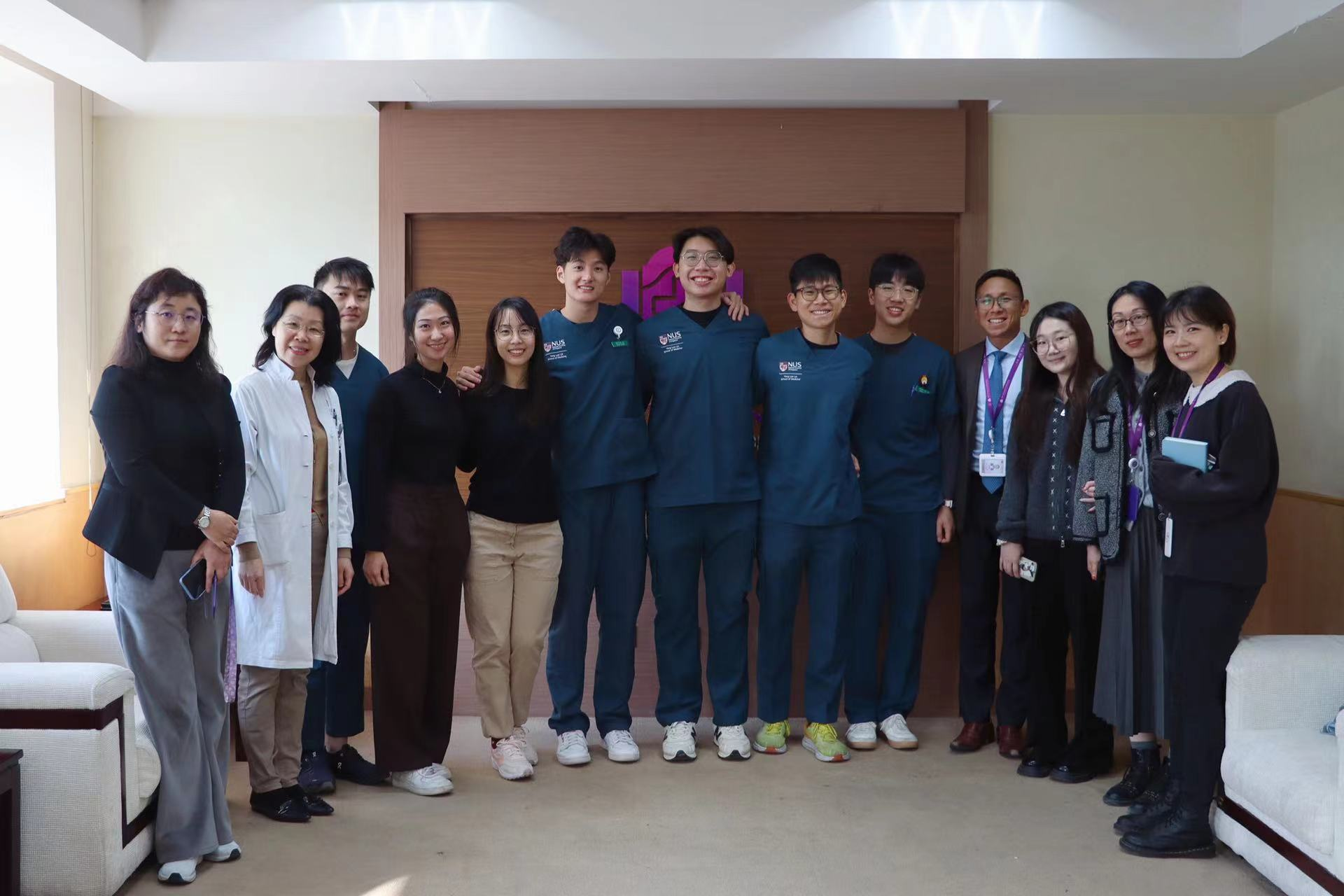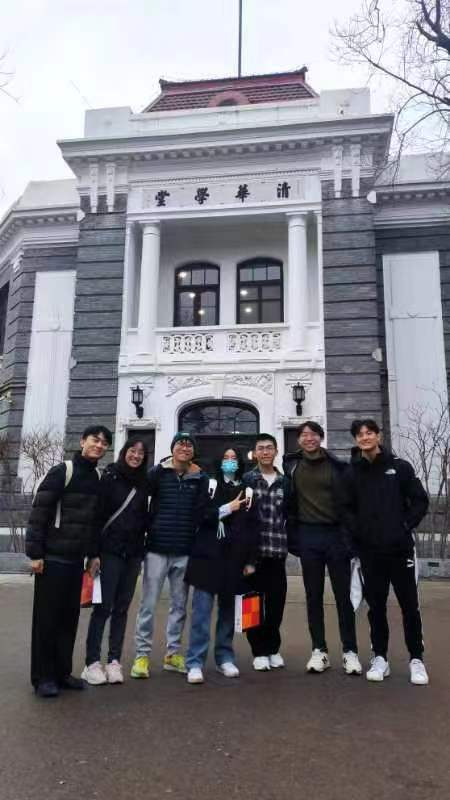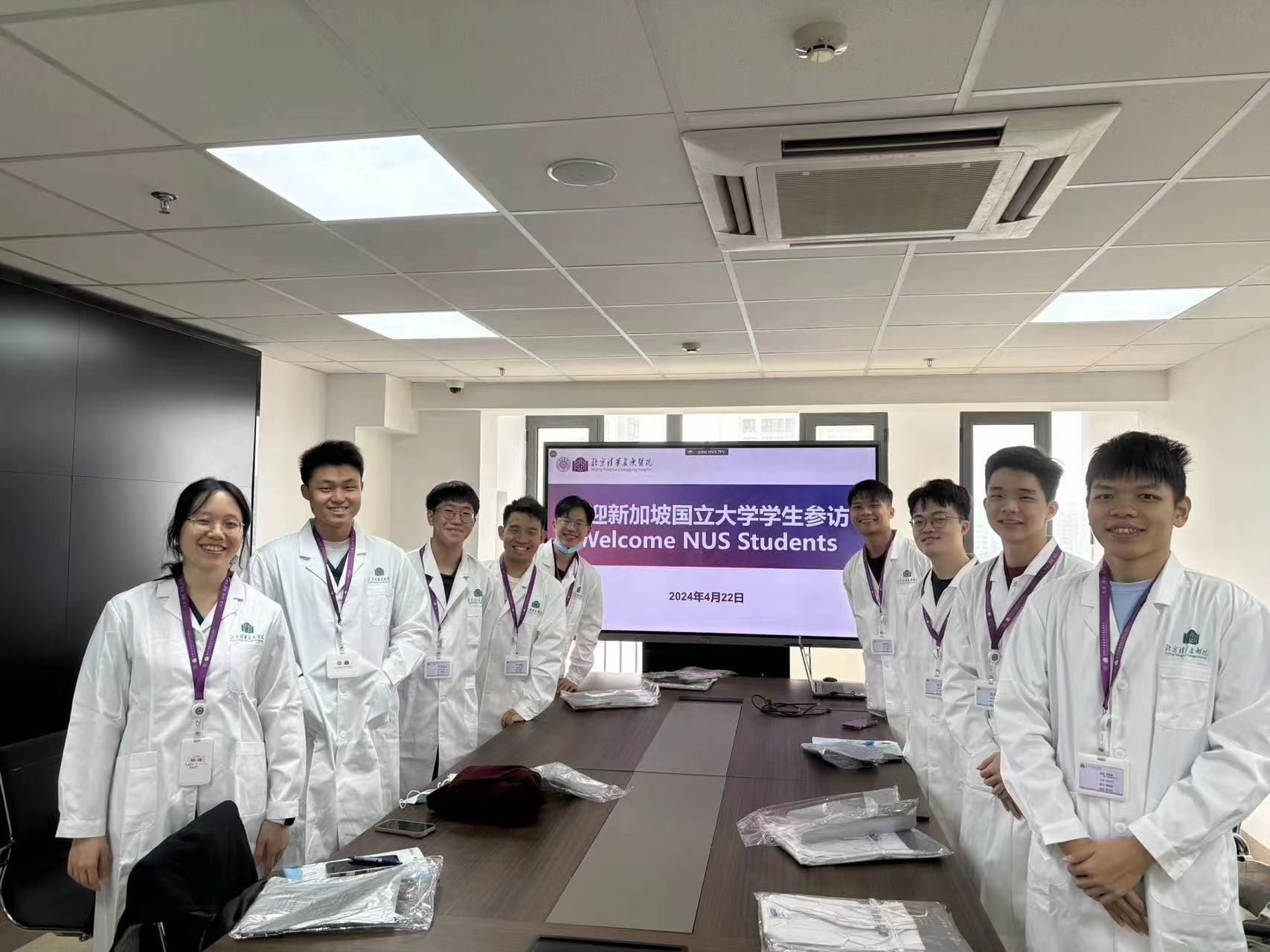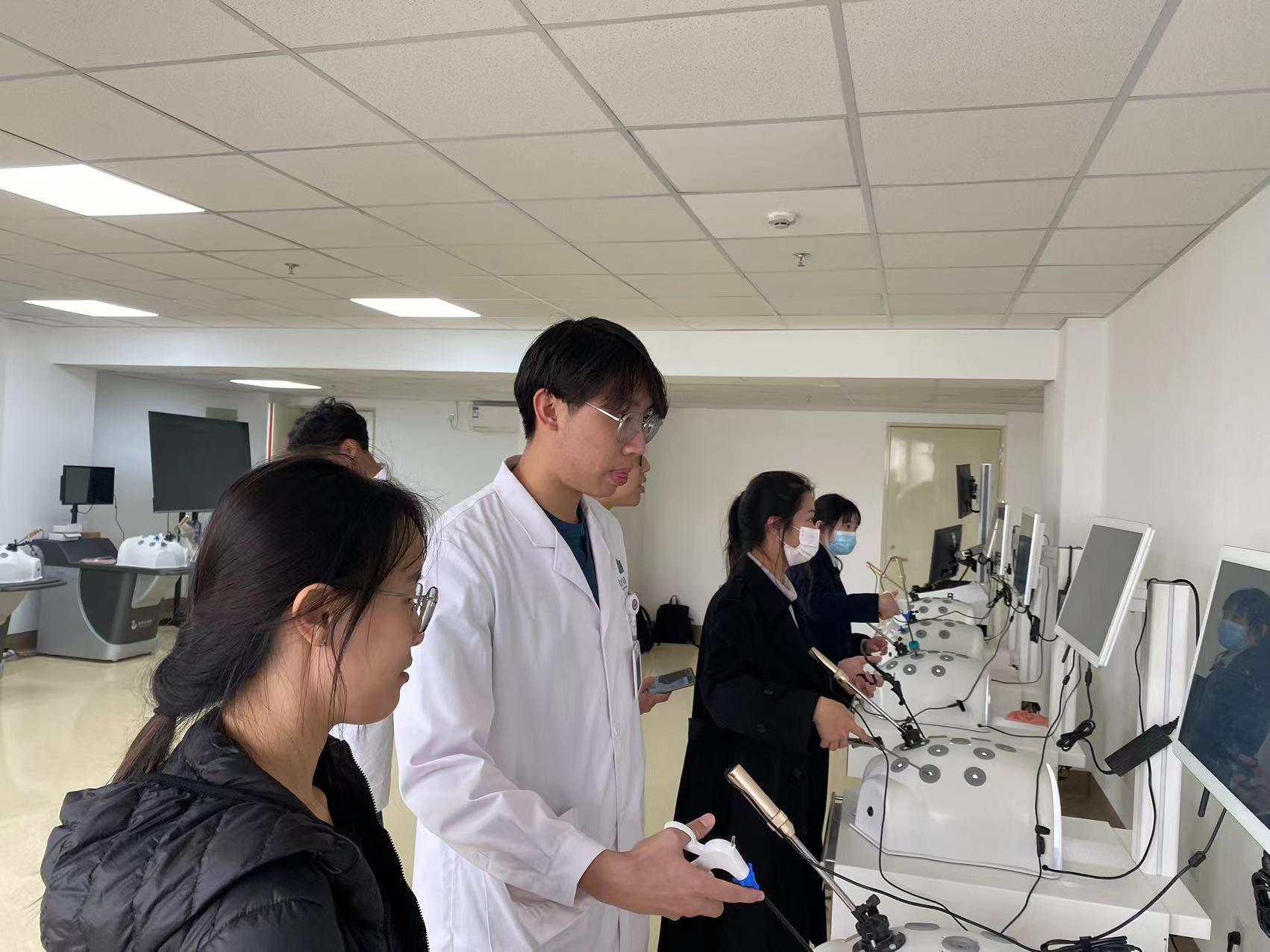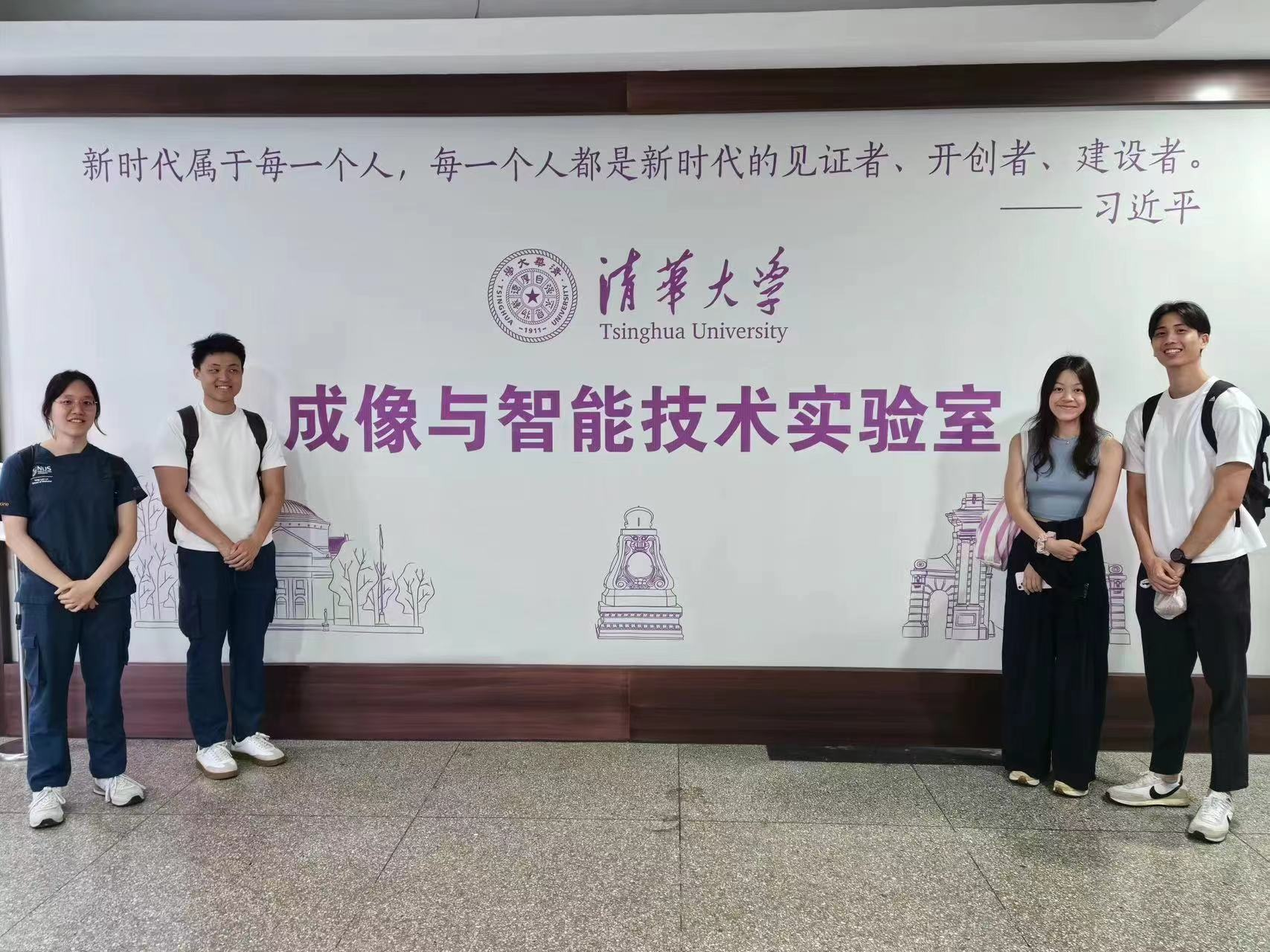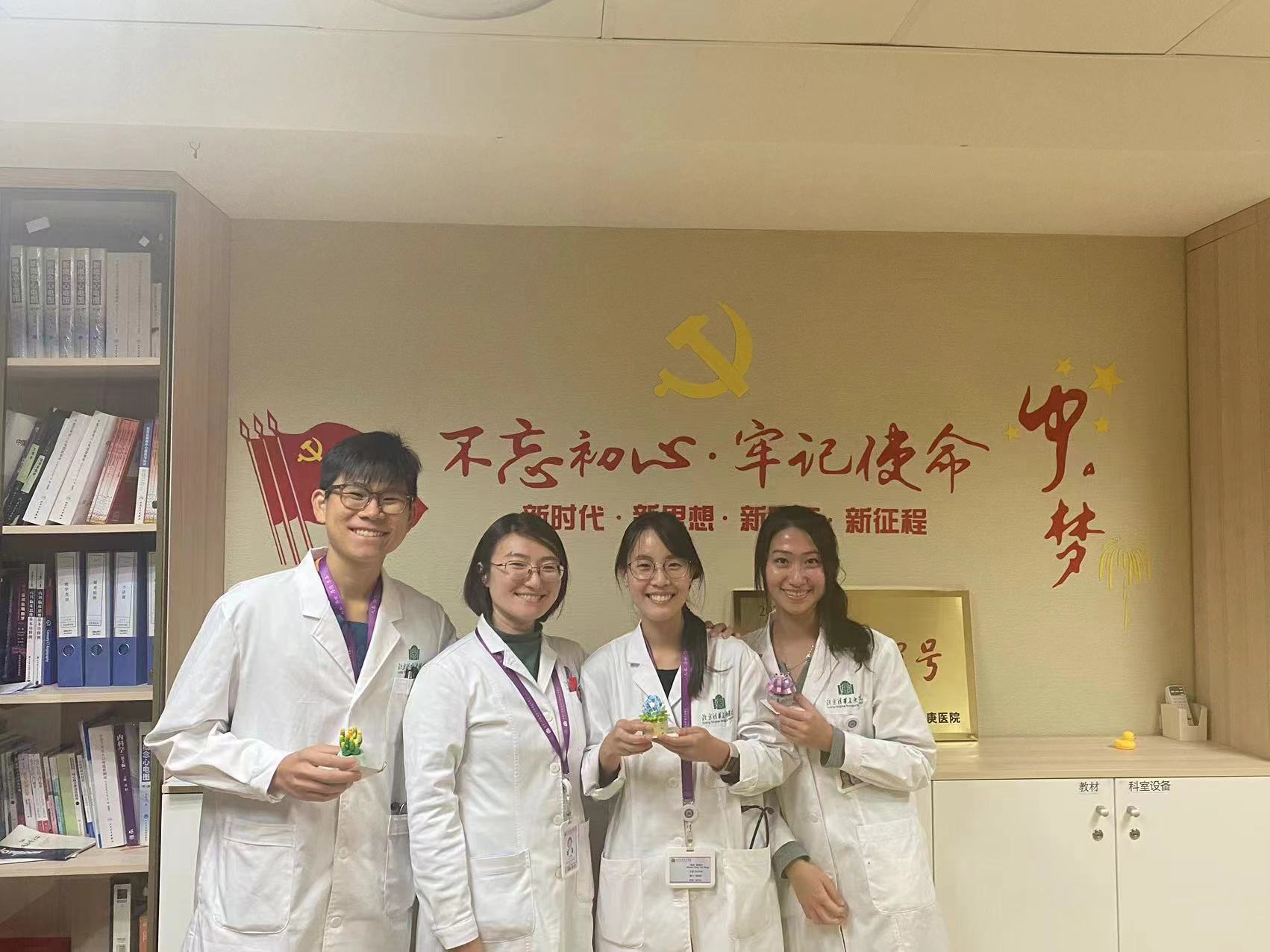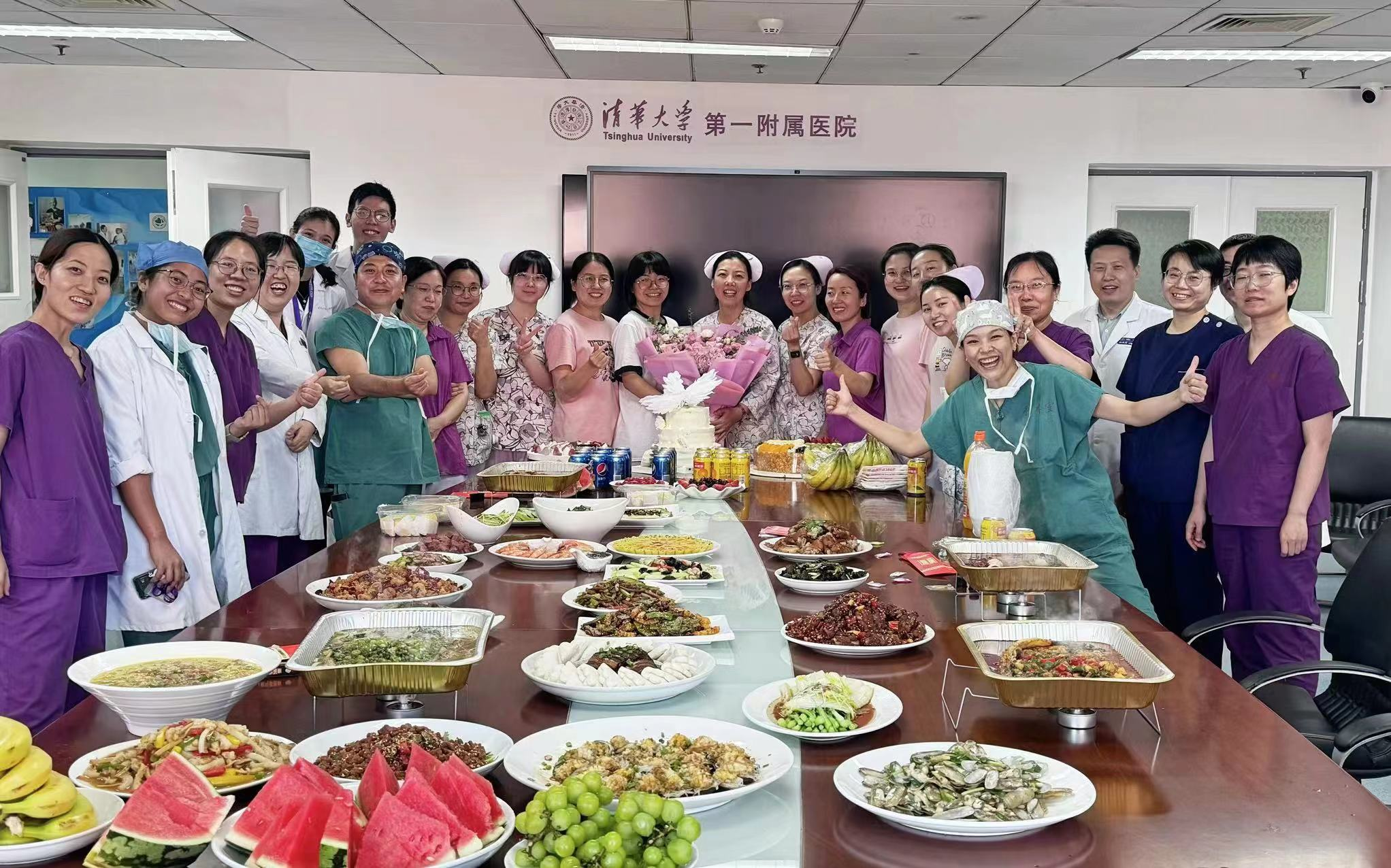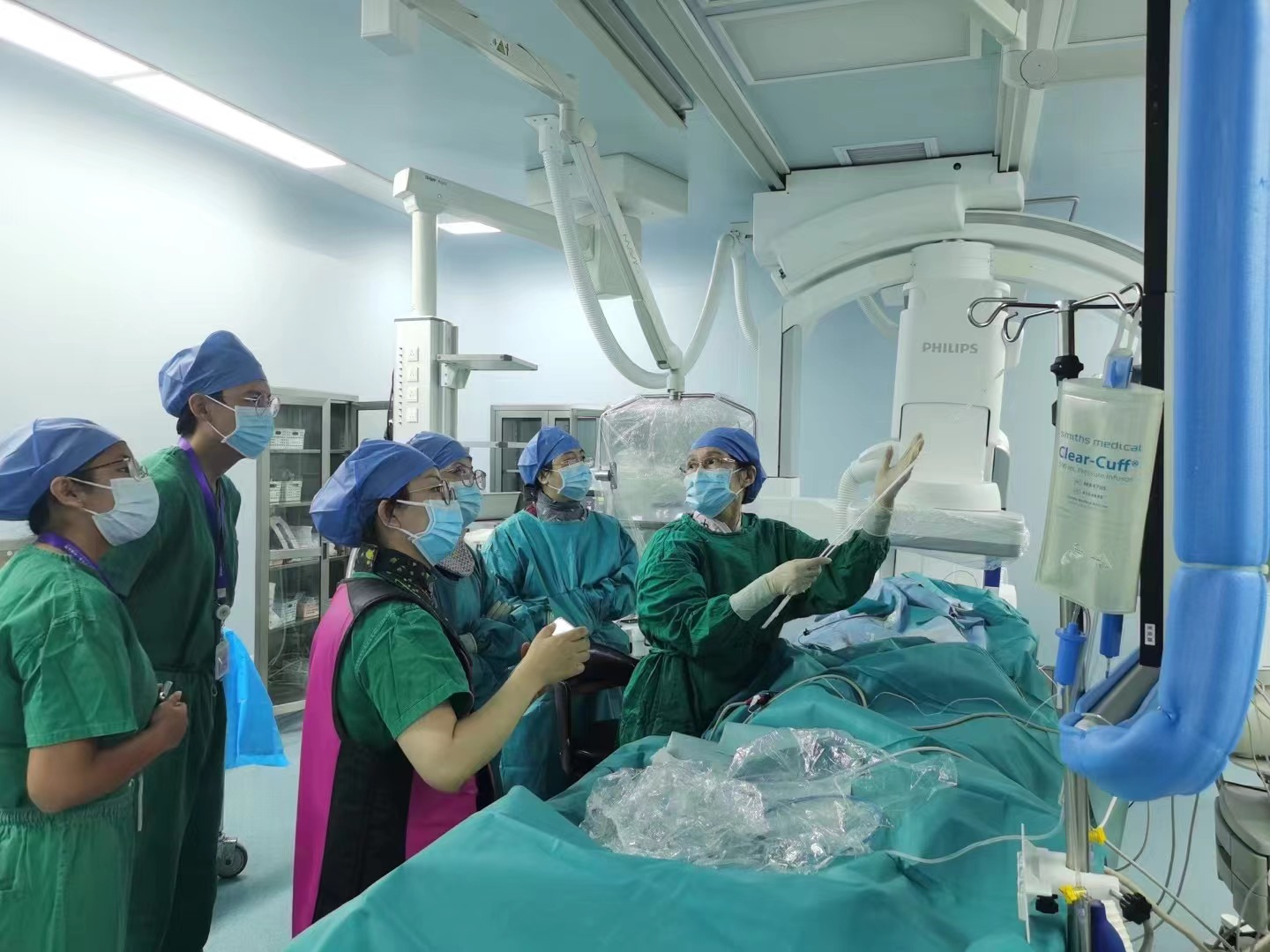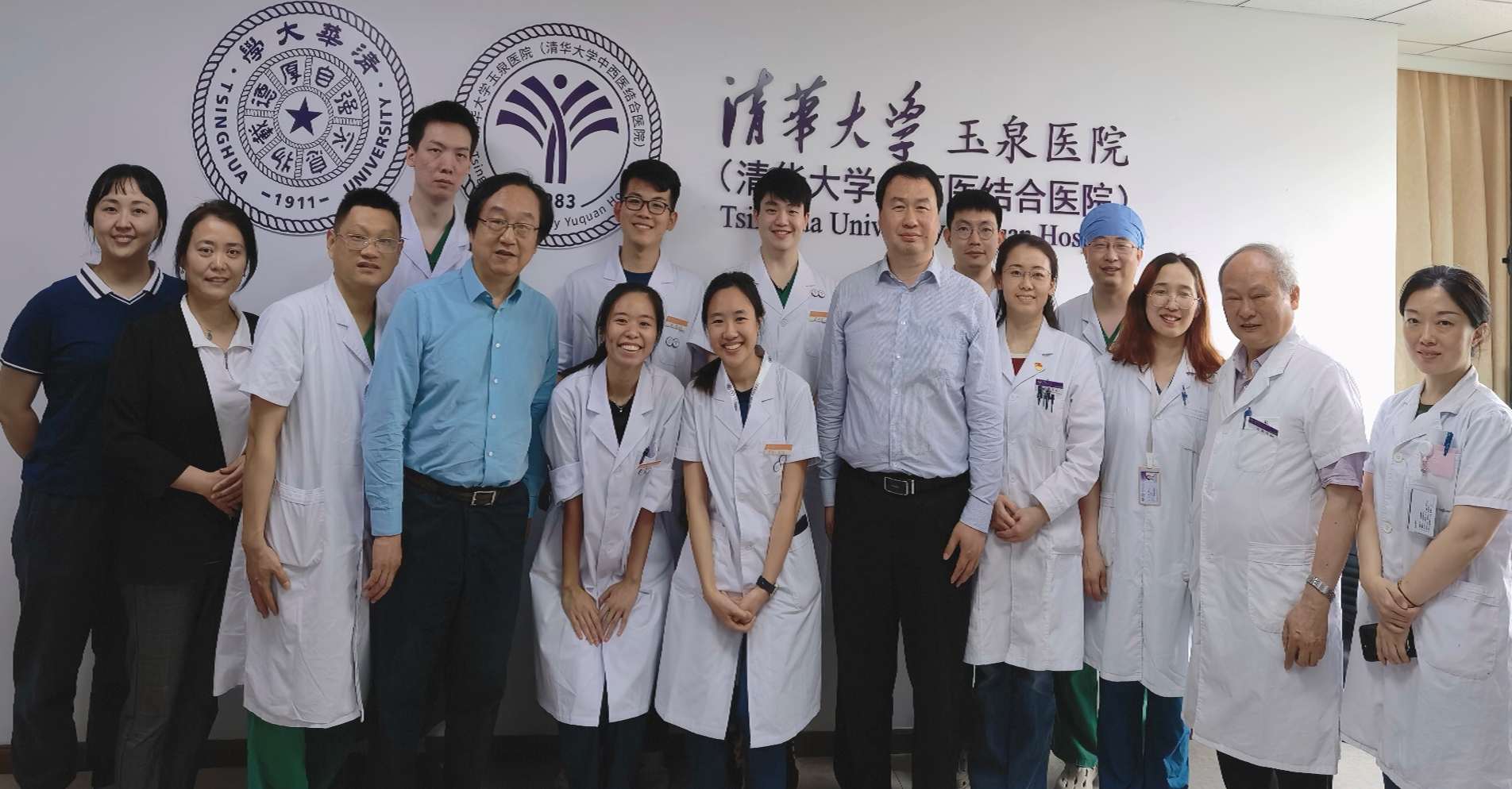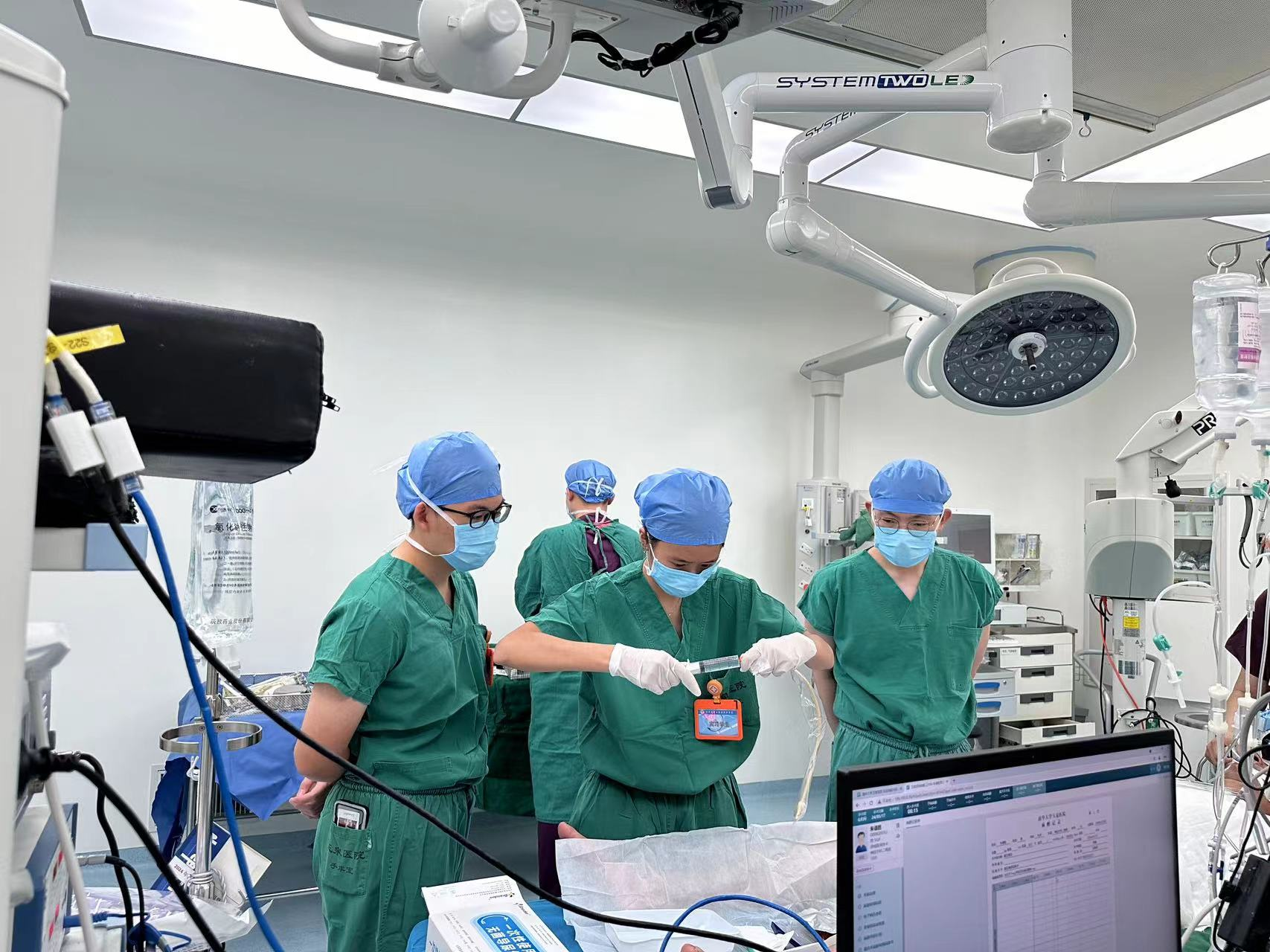From March 11 to June 7, 2024, 60 NUS medical students participated in the three - to -four-week Tsinghua Medicine International Medical Elective Programme 2024. These NUS students are all at the clinical practice stage and respectively joined the programme interdisciplinary modules in eyetech(Tsinghua Medicine – Tongren Eye Center), heart surgery and supporting disciplines, brain surgery and supporting disciplines, hepatobiliary surgery and supporting disciplines, renal – urology, cardiovascular medicine, neuroscience, ENT surgery and supporting disciplines. All students have achieved fruitful results, and given high praise to this project.
This Elective Programme aims to strengthen exchanges and cooperation in the medical field between China and Singapore, and provide students with international, high-level medical education and practical experience. The NUS students have had an in-depth learning and practice in the five Tsinghua- based schools affiliated to medicine and three affiliated hospitals overseen by Tsinghua Medicine. The three affiliated hospitals are all level ”3” general hospitals, and the five Tsinghua medicine-relevant schools and three affiliated hospitals are all connected to the efficient subway network in Beijing, which provides great convenience for students' study and life.
During the elective programme, students received guidance from research teams composed of outstanding clinical doctors and scientists from Tsinghua Medicine, and participated in active teaching and research projects. These projects cover multiple fields such as ophthalmology, cardiac surgery, and neurosurgery, aiming to provide students with the latest medical knowledge and practical experience.
It is worth mentioning that an important feature of Tsinghua Medicine International Elective Programme 2024 is the linkage between educational goals and learning outcomes. During the elective period, students underwent strict evaluation and supervision to ensure that they were learning and practicing within their abilities. In appropriate circumstances, these abilities will be used to evaluate the growth and progress of students before and after the elective programme.
In addition, the NUS students were organized to participate in a number of joint activities to gain an in-depth understanding of the customs and scenery of Beijing and its surrounding areas. These activities not only enriched students' extracurricular life, but also promoted the communication and friendship between the NUS students and teachers, doctors and students from Tsinghua Medicine.
In order to ensure that students can study in China smoothly, Tsinghua Medicine provided preferential policies such as tuition free and free accommodation, and assisted students in applying for visas. At the same time, the elective programme also received support from native English speakers throughout, and many doctors were also able to speak high-quality English as a second language, providing a good communication environment for international students.
The Tsinghua Medicine International Medical Elective Programme not only provides an opportunity for medical students from both countries to exchange and learn, but also further promotes the exchange and cooperation of international medical education. I believe that in the future, the cooperation between China and Singapore in the field of medicine will become closer and deeper.
